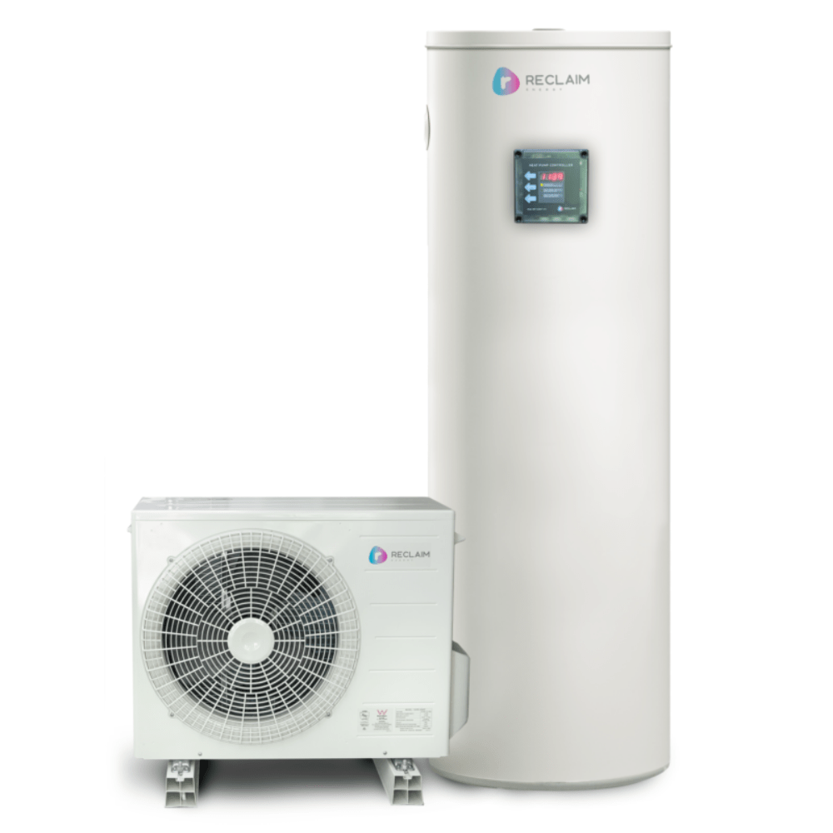A heat pump hot water system can be a great investment. Not only is it better for the planet, it can be better for your bottom line. If you’ve got solar panels, a heat pump also doubles as energy storage – you can turn that free electricity into a tank of hot water.
If you’re shopping around, chances are you’ll come across sites offering free hot water upgrades. By offering a cheaper system with cheaper installers, some businesses can earn enough through government rebates to deliver a free or low-cost system.
It’s certainly a tempting offer, but it might not be the right offer for you. In this article, we take an honest look at what price range is right for you, and then take a step back so you can decide for yourself.
It’s worth noting upfront that G Store only focus on premium quality products with long warranties and steer clear of the free/low end market – after reading this article, hopefully you understand why.
The Pros and Cons of Expensive Heat Pumps
High-end heat pumps are typically the most efficient and save you the most in the long run. Top level, trusted companies like Reclaim Energy and Sanden offer extremely efficient systems that have the highest reduction of energy bills. For example, Reclaim Energy’s CO2 Heat Pump has average annual energy savings of up to 80%, and costs less than a dollar a day to run. A household with solar panels can reduce this down to virtually nothing by running the system during peak generation hours thanks to an in-built timer.
That great efficiency means these systems are also great at lower temperatures. Both Sanden and Reclaim offer pumps/compressors that can operate up to -10° without needing an electric booster – that covers almost every home in Victoria. Working purely off the pump instead of requiring a booster keeps efficiency high and costs low.
But one of the biggest advantages to a more premium system is the reliability. Reclaim comes with a 15-year warranty for their stainless steel tanks, and a 10-year warranty on their glass-lined tanks, so you won’t be caught out with an expensive replacement a few years down the line. This is especially important because you only get one Victorian Government rebate – any replacement will be more expensive than the original. Plus, nobody wants to deal with cold showers until they can arrange somebody to come out and replace their system.
Noise is another benefit. Higher end heat pumps tend to be engineered such that they’re quieter, reaching as low as 37dB – as opposed to around 50dB on some low- and mid-range systems.
Admittedly, all these great features come at a cost. While you get what you pay for, you certainly will have to pay. These premium systems typically run for around $5000. Rebates can help offset the cost, and the systems will pay for themselves in savings eventually – but if you don’t have the money right now, it might be simply impossible to afford the investment.
If that’s the case, is it worth just upgrading now and hoping the savings on your bill will help you afford a better system when it’s time to upgrade? Let’s look at the realities of a cheaper system.

The Reclaim Hot Water Heat Pump is one of the top of the range
Pros and Cons of Cheap Heat Pumps
Probably the biggest downside to a budget option is the reliability and potential negative impact on the environment. Not only do they come with shorter warranties, meaning you might be replacing the system sooner than you think, it might not even produce the water you need. Many of these “free” systems come with smaller tanks and operate slower, so if you have higher water needs you could suddenly find yourself without enough hot water to run the washing machine. For some smaller families or people who live alone, that might not be an issue, but many households will need a larger tank and a more efficient system.
Since these systems run less efficiently, the savings might not be quite what you’re expecting – especially if the system uses an electric booster and has to draw more energy from the grid to keep up with your demand.
One downside many don’t consider is service. To offer a system and an install without any direct cost to you, the business’s costs have to be low. That means the system is cheaper, but it also means that the installation and after-sales service are cheaper too. In many cases, customers using these “free” services get a one-and-done installation from an installer just looking to get the job ticked off. If something goes wrong, support lines are often overloaded with callers and tickets, meaning long waits before someone gets back to you. You’ll have to cop that lengthy delay, or hire outside help to have a look at additional expense.
These systems aren’t truly free. The cons mentioned above – less reliability, worse service, and less efficiency – are the costs you pay for a “free” system. However, their one big advantage is that you don’t have to pay any actual money for them, at least not at the start. You might end up having to pay for external servicing, some more complex installs, and replacement down the line – but upfront, you’ll spend very little, if at all.
Whether or not that’s worth it is up to you, but keep in mind that it’ll eat your rebate. When you decide to upgrade to a better system, or when your system stops working, you won’t be able to offset the cost with rebates.
The Bottom Line
You’ll never find someone that doesn’t love a deal. At the end of the day, what it comes down to is if you’d prefer a deal today, or a great deal when you can afford it. If you can afford the upfront costs, there’s not much reason to go with any heat pump other than a high-range one – you’ll recover the costs over the years, and anything past that is money freed up from hot water bills.
If the upfront costs are too high, it’s up to you to decide whether you’ll wait until you can afford it, or if you accept the hidden costs of a cheaper system. Ultimately, you know what’s best for your needs and your home.

